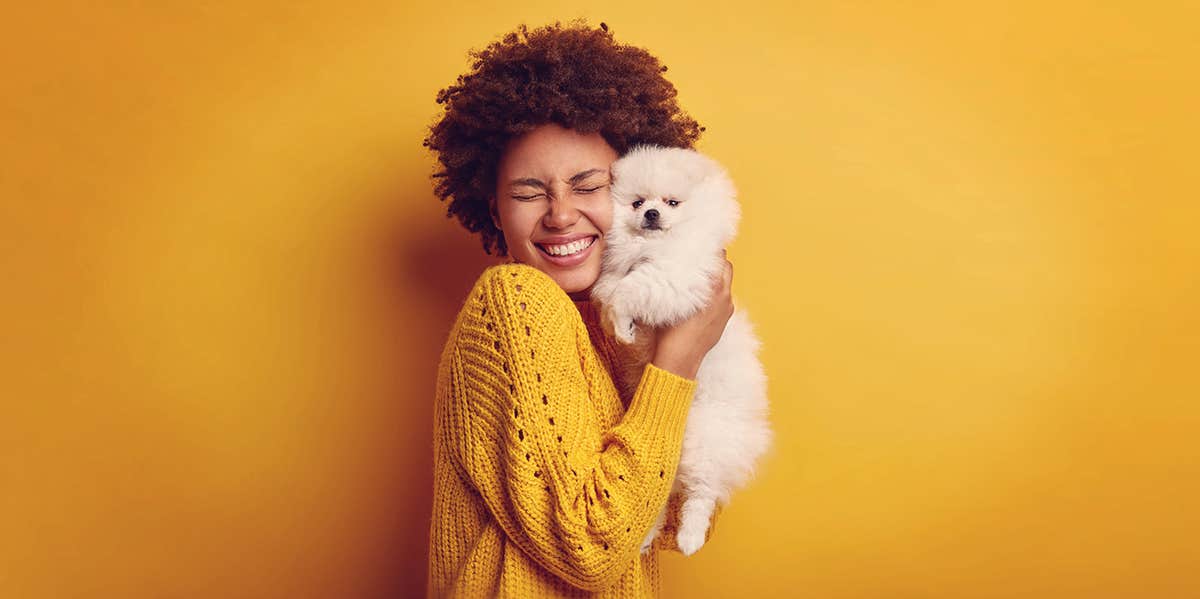Science Says You Love Your Pets As Much As Your Children
This is your brain on pets and kids.
 Cast Of Thousands / Shutterstock
Cast Of Thousands / Shutterstock If you ask any pet owner how they feel about their pet, they’re liable to correct your use of the word "pet," right before going into a long spiel about how their cat, Dr. Watson, or their dog, Marky Mark, are not pets at all, but actual family members.
How dare you!? Can't you see that Dr. Watson and Marky Mark are their babies?! And, as a pet owner, I totally understand it.
When someone calls my baby, a "dog," I, too, point out their error. Hubbell may technically be a dog, but to me, he's more human than most people.
If you don't own a pet, then there's a good chance you find this way of thinking absurd. That’s OK because science has our back on this one.
Science says you love your pets as much as your children.
A study has found that women really and truly think of their dogs as their children, but with more fur, obviously. Researchers looked into the brain activity of a group of women who have at least one child between the ages of two and 10, and who were also dog owners at the same time.
Between questionnaires and the showing of the women's photos of both their children and dogs, the results were quite clear: When it comes to babies and dogs, women don't see a difference. In fact, in some women, their brain responds even more strongly to photos of their dogs than their kids.
As the lead researcher of the study, Lori Palley of Massachusetts General Hospital, explained, "Pets hold a special place in many people's hearts and lives, and there is compelling evidence from clinical and laboratory studies that interacting with pets can be beneficial to the physical, social and emotional wellbeing of humans."
The positive effects that pets have on human beings have even spilled over into the workplace where some business offices allow their employees to bring their dogs to work. "Dogs were domesticated to be attentive to us," explains clinical social worker and therapist, Deb Havill, "It is natural for us to be around them, so to not be around them would be unnatural. We would be in an unnatural state." See? We need them. We can't live without them.
Takeaway? Pets, er, furry babies evoke strong emotions and feelings in humans.
The intensity of our love for them is clearly visible in functional magnetic resonance imaging, where the parts of the brain associated with "emotion, reward, affiliation, visual processing, and social interaction" all show an increase in activity when we, the women pet owners of the world, are shown photos of our little bundles of joy.
So, the next time you overhear a woman telling their dog, "Oh! You made mommy so proud when you caught that ball," don’t roll your eyes. That furry little monster is her baby, both in her heart and in her brain.
Amanda Chatel is a writer who divides her time between NYC and Paris. She's a regular contributor to Bustle and Glamour, with bylines at Harper's Bazaar, The Atlantic, Forbes, Livingly, Mic, The Bolde, Huffington Post, and others.
